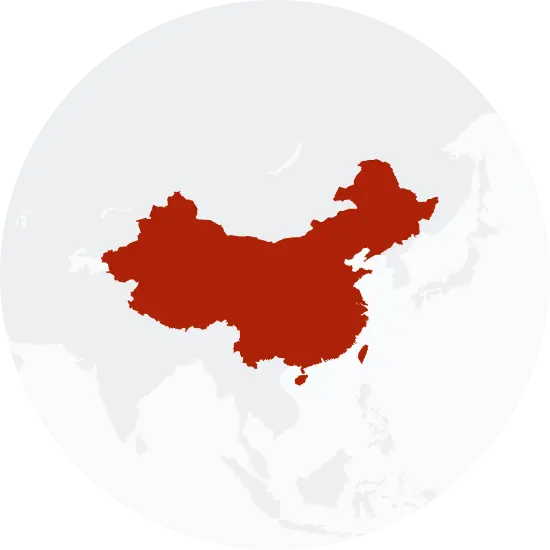Explore the Family Name Kong
How common is the last name Kong in the United States?
Based on the Decennial U.S. Census, the popularity of the surname Kong has seen a notable increase between 2000 and 2010. Previously ranked at 3005 in 2000, it moved up to 2551 by 2010, indicating a 15.11% rise in rank. In hard numbers, the count of individuals with this surname grew from 11,040 to 14,165 over the decade, marking a substantial 28.31% increase. The proportion of people named Kong per 100,000 also increased from 4.09 to 4.8, signifying a 17.36% rise.
| 2000 | 2010 | Change | |
|---|---|---|---|
| Rank | #3,005 | #2,551 | 15.11% |
| Count | 11,040 | 14,165 | 28.31% |
| Proportion per 100k | 4.09 | 4.8 | 17.36% |
Race and Ethnicity of people with the last name Kong
When it comes to ethnic identity, data from the Decennial U.S. Census shows that most bearers of the surname Kong identified as Asian/Pacific Islander in both 2000 and 2010, with an increase from 85.21% to 87.91%. However, the percentage of those identifying as two or more races decreased from 4.63% to 3.54%. The proportion of individuals identifying as White also saw a decline from 6.34% to 4.46%. The Hispanic population with the surname Kong experienced growth, increasing from 1.36% to 1.78%. Meanwhile, the percentage of Black individuals with the Kong surname slightly dropped from 2.32% to 2.22%, and the American Indian and Alaskan Native group's representation fell from 0.14% to 0.09%.
| 2000 | 2010 | Change | |
|---|---|---|---|
| Asian/Pacific Islander | 85.21% | 87.91% | 3.17% |
| White | 6.34% | 4.46% | -29.65% |
| Two or More Races | 4.63% | 3.54% | -23.54% |
| Black | 2.32% | 2.22% | -4.31% |
| Hispanic | 1.36% | 1.78% | 30.88% |
| American Indian and Alaskan Native | 0.14% | 0.09% | -35.71% |
Kong ancestry composition
23andMe computes an ancestry breakdown for each customer. People may have ancestry from just one population or they may have ancestry from several populations. The most commonly-observed ancestry found in people with the surname Kong is Chinese, which comprises 58.6% of all ancestry found in people with the surname. The next two most common ancestries are Korean (10.2%) and Indonesian, Thai, Khmer & Myanma (6.4%). Additional ancestries include Chinese Dai, British & Irish, Vietnamese, French & German, and Filipino & Austronesian.
Ready to learn more about your ancestry? Get the most comprehensive ancestry breakdown on the market by taking our DNA test. Shop 23andMe
| ANCESTRY BREAKDOWN | COMPOSITION |
|---|---|
| Chinese | 58.6% |
| Korean | 10.2% |
| Indonesian, Thai, Khmer & Myanma | 6.4% |
| Other | 24.7% |

Possible origins of the surname Kong
Your DNA provides clues about where your recent ancestors may have lived. Having many distant relatives in the same location suggests that you may all share common ancestry there. Locations with many distant relatives can also be places where people have migrated recently, such as large cities. If a large number of individuals who share your surname have distant relatives in a specific area, it could indicate a connection between your surname and that location, stemming from either recent ancestral ties or migration.
Based on 23andMe data, people with last name Kong have recent ancestry locations all within China.
| RECENT ANCESTRY Location | Percentage |
|---|---|
| Guangdong, China | 48.50% |
| Zhejiang, China | 45.90% |
| Shanghai, China | 45.60% |
| Jiangsu, China | 45.20% |
| Shandong, China | 44.90% |
What Kong haplogroups can tell you
Haplogroups are genetic population groups that share a common ancestor on either your paternal or maternal line. These paternal and maternal haplogroups shed light on your genetic ancestry and help tell the story of your family.
The top paternal haplogroup of people with the surname Kong is O-F838, which is predominantly found among people with East Asian & Indigenous American ancestry. Haplogroup O-F838 is descended from haplogroup O-M1359. Other common haplogroups include O-F8 and O-F81, which are predominantly found among people with East Asian & Indigenous American and East Asian & Indigenous American ancestry. Other surnames with similar common haplogroups are: Gong, Lu, Chow, Wang, Chang, Wu, Lai, Tang, Chen, Chan.
The most common maternal haplogroups of people with Kong surname are: F1a1, D4, M7b. These most commonly trace back to individuals of East Asian & Indigenous American and European ancestry.
 Paternal Haplogroup Origins O-M1359
Paternal Haplogroup Origins O-M1359
Your paternal lineage may be linked to the Yayoi people
Historical Japanese cultures developed from two waves of people migrating from the Asian continent. Hunter-gatherers arrived in Japan more than 12,000 years ago, perhaps during the last Ice Age, when a land bridge connected Japan to the Asian mainland. This influx of people led to a culture called the Jomon. The Jomon were followed by a second migration into Japan nearly 2,300 years ago. This migration, called the Yayoi expansion, brought one lineage of haplogroup O1b to Japan, along with wet rice agriculture, weaving techniques, and metalworking technology. Research suggests that the Yayoi people were descendants of prehistoric farmers that originated in Southeast Asia, and may be associated with the origin of agriculture in the region. The transition of people in Japan from hunter-gatherers to farmers may have been triggered around 400 BC by technological developments introduced by the Yayoi people, including cold-resistant varieties of rice, iron tools, and rice field irrigation.
Your maternal lineage may be linked to the Hmong-Mien
Haplogroup F is particularly common in populations of Hmong-Mien speakers, one of the major language families in East Asia. This group includes the Lahu, Hmong, Lao, and Mien of southern China and Southeast Asia. Many of these groups are considered ethnic minorities in their countries, including in China, Vietnam, and Thailand.During the Vietnam War, from 1953 to 1975, the United States Central Intelligence Agency recruited many of the Hmong, Lao, Mien, and Lahu to fight for American interests in Laos against the North Vietnamese and the Pathet Lao. When the North Vietnamese and Pathet Lao gained control of the region, members of the ethnic groups recruited by the US were targeted, forcing many of the Hmong-Mien to flee the country. Many refugees resettled in the United States, especially in California and along the western seaboard.

What do people with the surname Kong have in common?
Spoiler alert: it's complicated. People with the same last name are usually no more genetically similar than a randomly sampled group of people from the same population. That said, people with the same surname are more likely to have similar ancestries than randomly sampled individuals. The reason is the tendency of people with similar cultural or geographical backgrounds to preferentially mate with one another. That's why people who share a surname may be more likely to share traits and tendencies in common than people within the general population. Check out the percentages below to see the prevalences of tastes, habits, and traits of people with your surname compared with prevalences among 23andMe users.
Preferences
Traits
Habits
Wellness
Are health conditions linked to the last name Kong?
The short answer is that, if there is an association between surname and health, it's usually more about your ancestry than your name. Individuals with a given surname are no more genetically similar than the general population but often have similar ancestries. The populations of people associated with those shared ancestries often have sets of genetic variations, also known as alleles, in common. Some of those alleles are associated with a greater likelihood of developing certain diseases.
Disease variant frequency by ancestry
Disease allele frequencies in populations associated with the surname Kong are shown below. Important Note: not everyone with a disease allele will develop these health condition
















